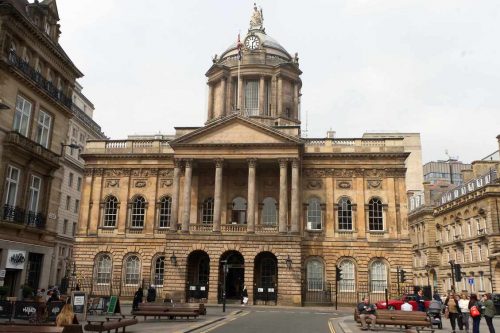Liverpool City Council approves balanced budget

Liverpool City Council last night approved its 2024/25 budget, which includes an increase in Business Rates that will generate £200m for the local authority.
It also includes a £20m drive to improve and transform key frontline services.
In addition, the council has increased budgets for demand-led services, as a result of the continuing impact from high inflation and the cost of living crisis, by a further £24m in 2024/25. This is on top of what was thought previously required, some £25m, as set out in the Medium Term Financial Strategy (MTFS) in March 2023.
Council Tax will rise by 4.99 per cent, which is in line with most other local authorities in England.
Local authorities around the country, such as Birmingham and Nottingham, are currently facing unprecedented pressures on their funding due to huge ongoing government cuts and rising prices.
Last week, Greater Manchester Mayor, Andy Burnham, speaking at the Convention of the North in Leeds, warned that the crisis in local government funding risks damaging the foundation of the whole city region model of devolution.
He said: “Over the last 14 years, central government has treated local government appallingly just cutting it back, and back, and back, year after year.”
Reacting to yesterday’s Spring Budget, he said: “This Budget failed to acknowledge or address the national emergency in the state of local government finances. Instead, the Chancellor chose tax cuts that will ultimately be paid for by further drastic cuts to public services. The consequences are severe – for communities both in Greater Manchester and across the UK – and our most vulnerable residents will be hardest hit. It is unacceptable for local government to be treated this way.”
In passing its budget last night, Liverpool City Council said the focus is to continue to support the most vulnerable in the city’s communities and to deliver improvements driven by better financial management, such as improved collection of payments and maximising the use of new legislation to bring empty properties back into use as quickly as possible.
The measures were welcomed by Government Commissioners who were parachuted into the authority in June 2021, following a damning report into the Labour-controlled authority by government inspector Max Caller.
Key elements of the additional funding include:
- £7.8m to support transformation activities to improve the delivery of council services and investment decisions
- £3.5m for Children’s Services to support its improvement plan, rising to £4.8m from 2025/26
- £1.7m for street cleansing over the next two financial years
- £1.5m for neighbourhood enforcement programmes over next two financial years
- £1.4m for the new Neighbourhood Model services
- An additional £1m per year from 2025/26 will be invested to support homelessness services
As well as additional investment, the council will also put aside six per cent of its next expenditure budget in reserve. This equates to £37m which provides financial resilience in case of the need for emergency spending.
The council is projected to make £85m of savings by 2025/26, of which a significant amount relates to improvements in adults and children’s social care.
In addition a further £18m will have been generated by 2025/26 thanks to increased income collection rates as a result of improvements to online payment processes and streamlining systems.
Liverpool City Council has also absorbed the 9.8% National Living Wage increase, which comes into effect from April 1 2024.
The Commissioners have described the budget as “the culmination of some very impressive teamwork within finance and between finance and strategic directors and Departments, and between officers and the Executive”.
Council leader, Cllr Liam Robinson, said: “Despite the huge financial challenges that the local government sector is facing, I am hugely proud of the work of the entire council in delivering a budget which protects essential services and invests in many of the services we know people value the most.
“Our move to a new Neighbourhood Model of joining up services will make us more effective and responsive to issues raised by residents and councillors, as well as enabling us to tackle issues with rogue landlords and anti-social behaviour.
“In addition to this, we are investing significantly in tackling the issues that matter most to residents, such as flytipping, street cleansing and homelessness.”








